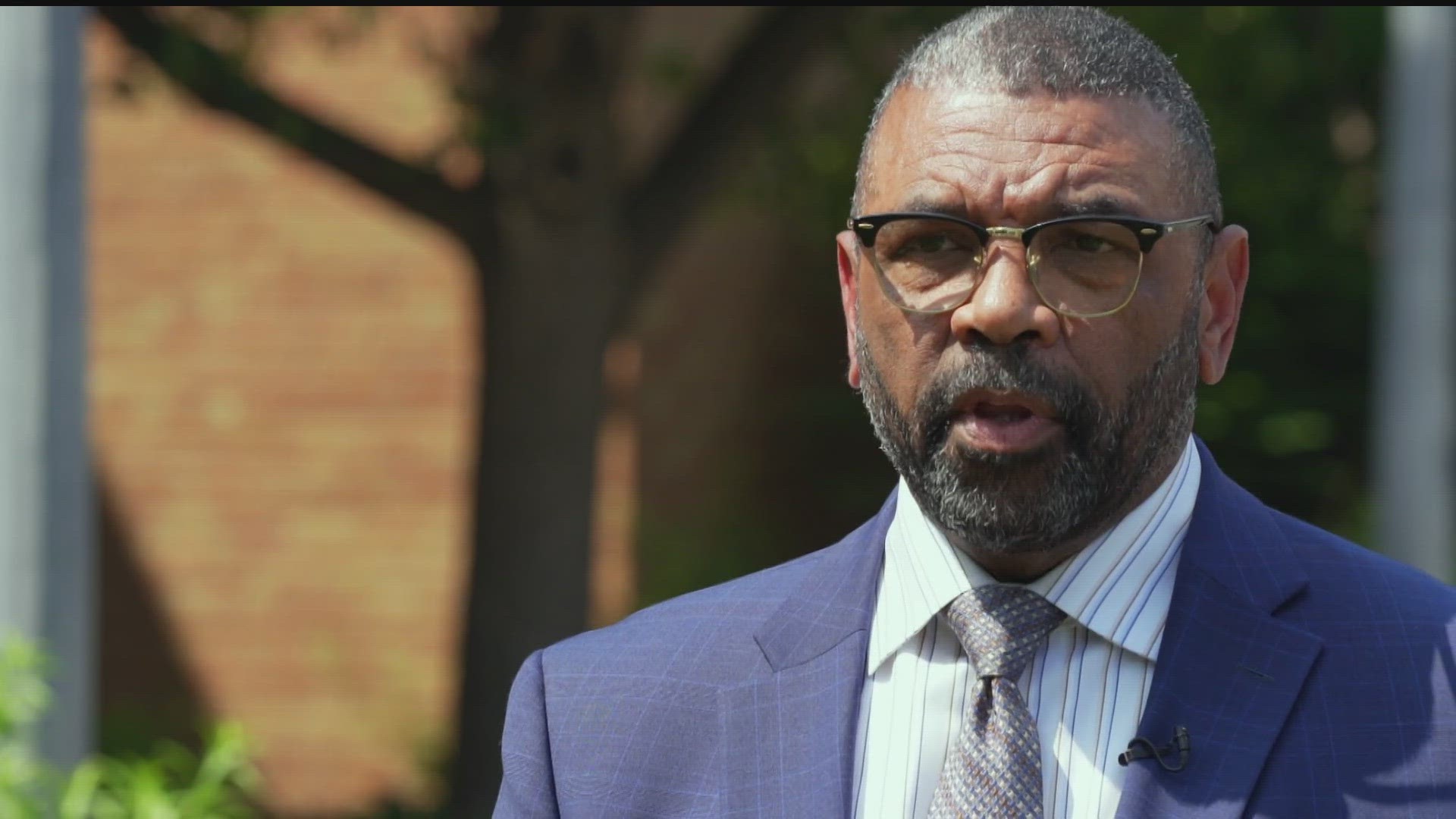MINNEAPOLIS — After the Department of Justice issued a harsh, 89-page report on Friday alleging unconstitutional practices by Minneapolis Police, the two sides will now spend the next several months hashing out the terms of a consent decree that could reshape the department for decades to come.
In broad terms, a consent decree is basically an agreement between parties -- in this case, the Department of Justice and the city of Minneapolis -- that sets clear parameters for reform under the enforcement of the federal court system. The city entered a similar agreement at the state level with the Minnesota Department of Human Rights earlier this year. According to Mayor Jacob Frey, the city will work to appoint one independent monitor to oversee both court orders.
Minneapolis has long anticipated a federal consent decree. In fact, the city selected new MPD Chief Brian O'Hara last year in part because of his experience navigating a consent decree in Newark, N.J.
"I think it's a good next step," said Rick Petry, who has followed developments with the DOJ closely as an adjunct professor at the Mitchell Hamline School of Law. "The reason it's significant is because that agreement will get filed with the court -- federal district court here in Minnesota -- and if one of the parties doesn't comply with the terms of the agreement, then the other party could go back into court and seek enforcement. That's a pretty significant deal there."
It's not clear exactly how long negotiations will last before the two sides enter into an official consent decree, but this is hardly a new process for the Department of Justice.
The federal government has used consent decrees frequently over the past three decades to overhaul police departments across the nation, although Democratic administrations in the White House have pursued them more vigorously than their Republican counterparts.
Under the Clinton administration, Pittsburgh became the first city in the U.S. to enter a consent decree in 1997. That agreement lasted until 2002 and mandated changes to Pittsburgh Police around traffic stops, searches, and training methods.
"The real question is if you can get it to stick," said David Harris, an expert on police accountability at the University of Pittsburgh Law School. "The Pittsburgh Police Department's consent decree was very successful in its first five to seven years when you had a city administration and police command very committed to it and it put the Pittsburgh Police Department really in the vanguard nationally. But then there were new mayoral administrations and new police chiefs, and pretty soon people stopped thinking about it."
Consent decrees can vary widely depending on the city.
Over the years, there have been major success stories, such as the reforms implemented in the early 2000s by Cincinnati, which is often considered a model for the consent decree process. Other cities have either failed with consent decrees or seen much slower progress. The Oakland Police Department, for example, has been under federal oversight for the past two decades, while New Orleans has been under a consent decree since 2013.
"It has a mixed record," Harris said, "but it is one of the few tools there is that has a chance of addressing the overall systemic problems that a police department might have."
The police department in Ferguson, Mo., where Michael Brown was killed in 2014, has been working under a consent decree for seven years.
"Going under consent decree is a big blow to your department," said Jason Armstrong, the chief of Ferguson Police from 2019 to 2021. "A lot of officers just don't understand what it is and a lot of people don't understand how this process works or what it does to your organization."
Given his own experience navigating significant publicity and national scrutiny with a consent decree, Armstrong offered some advice to Minneapolis leaders.
"Focus on the work. At the end of the day, the work is what's important," Armstrong said. "The biggest thing is trying to find people inside the organization and out in the community, that are committed to doing the work. Individuals who want to see progress and want to see things better, those are the individuals you'll be able to count on and rely on."
According to the Department of Justice, the Minneapolis Police Department is the eighth law enforcement agency that the Biden administration has investigated. A few of the other notable probes involve the Louisville Metro Police Department and the Phoenix Police Department.
However, if the consent decree process moves forward as expected, Minneapolis will become the first city in U.S. history to come under both federal and state orders at the same time.
Rick Petry, the legal expert who also leads Diversity, Equity, and Inclusion at Mitchell Hamline, said he doesn't foresee significant issues with two simultaneous court agreements.
"What I hope it will do," Petry said, "is add some gravitas, if you will, to the significance of the problem."
Watch more local news:
Watch the latest local news from the Twin Cities and across Minnesota in our YouTube playlist:

